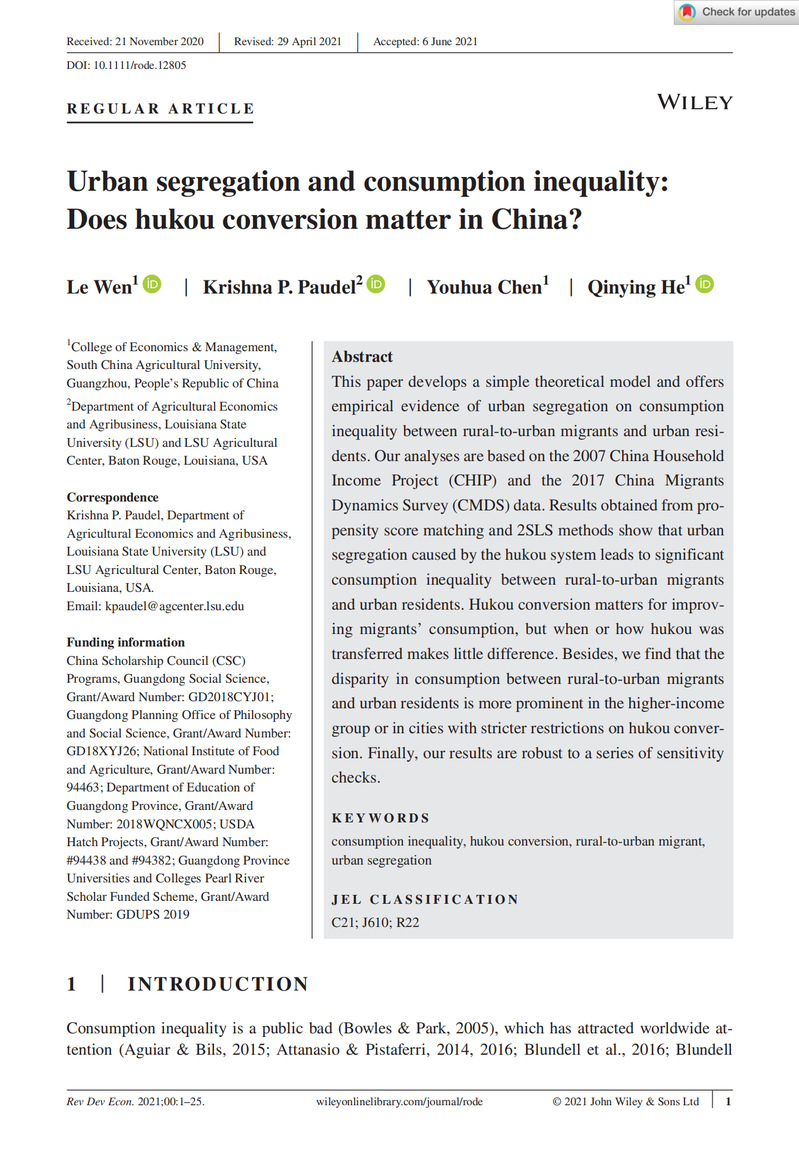DOI: 10.1111/rode.12805
摘 要
This paper develops a simple theoretical model and offers empirical evidence of urban segregation on consumption inequality between rural-to-urban migrants and urban residents. Our analyses are based on the 2007 China Household Income Project (CHIP) and the 2017 China Migrants Dynamics Survey (CMDS) data. Results obtained from propensity score matching and 2SLS methods show that urban segregation caused by the hukou system leads to significant consumption inequality between rural-to-urban migrants and urban residents. Hukou conversion matters for improving migrants’ consumption, but when or how hukou was transferred makes little difference. Besides, we find that the disparity in consumption between rural-to-urban migrants and urban residents is more prominent in the higher-income group or in cities with stricter restrictions on hukou conversion. Finally, our results are robust to a series of sensitivity checks.
关键词
Consumption inequality; Hukou conversion; Rural-to-urban migrant; Urban segregation

基金资助:
The authors are grateful for the research grants provided by Guangdong Planning Office of Philosophy and Social Science (No. GD18XYJ26), Department of Education of Guangdong Province (No. 2018WQNCX005), China Scholarship Council (CSC) Programs, Guangdong Social Science (GD2018CYJ01) and Guangdong Province Universities and Colleges Pearl River Scholar Funded Scheme (GDUPS 2019). Paudel's time on this paper was supported by the USDA Hatch Projects #94438 and #94382.
责任编辑:董晓玲
审 定:黄 松